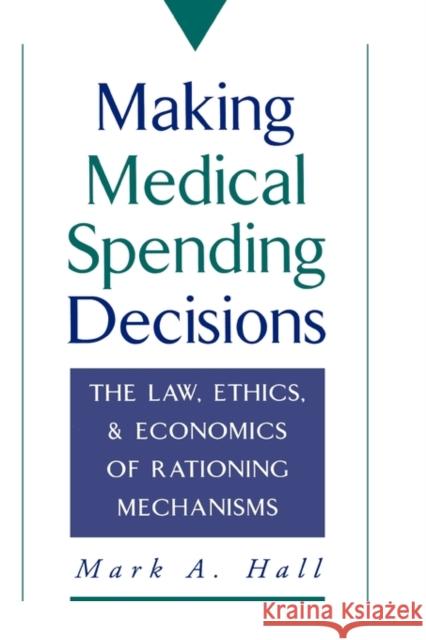Making Medical Spending Decisions: The Law, Ethics & Economics of Rationing Mechanisms » książka
Making Medical Spending Decisions: The Law, Ethics & Economics of Rationing Mechanisms
ISBN-13: 9780195092196 / Angielski / Twarda / 1996 / 312 str.
A fresh and comprehensive exploration of how health care rationing decisions are made, this book offers not specific criteria for rationing--like age or quality of life--but a comparative analysis of three alternative decision makers: consumers paying out of pocket, government and insurance officials setting limits on treatments and coverage, and physicians making decisions at the bedside. Hall's analysis reveals that none of these alternatives is uniformly superior, and, therefore, a mix of all three is inevitable.
The author develops his analysis along three lines of reasoning: political economics, ethics, and law. The economic dimension addresses the practical feasibility of each method for making spending decisions. The ethical dimension discusses several theories--principally classic liberalism, social contract theory, and communitarianism--as well as concepts like autonomy and coercion. The legal dimension follows recent developments in legal doctrine such as informed consent, insurance coverage disputes, and the emerging direction of federal regulation. Hall concludes that physician rationing at the bedside is far more promising than medical ethicists and the medical profession have traditionally allowed.











